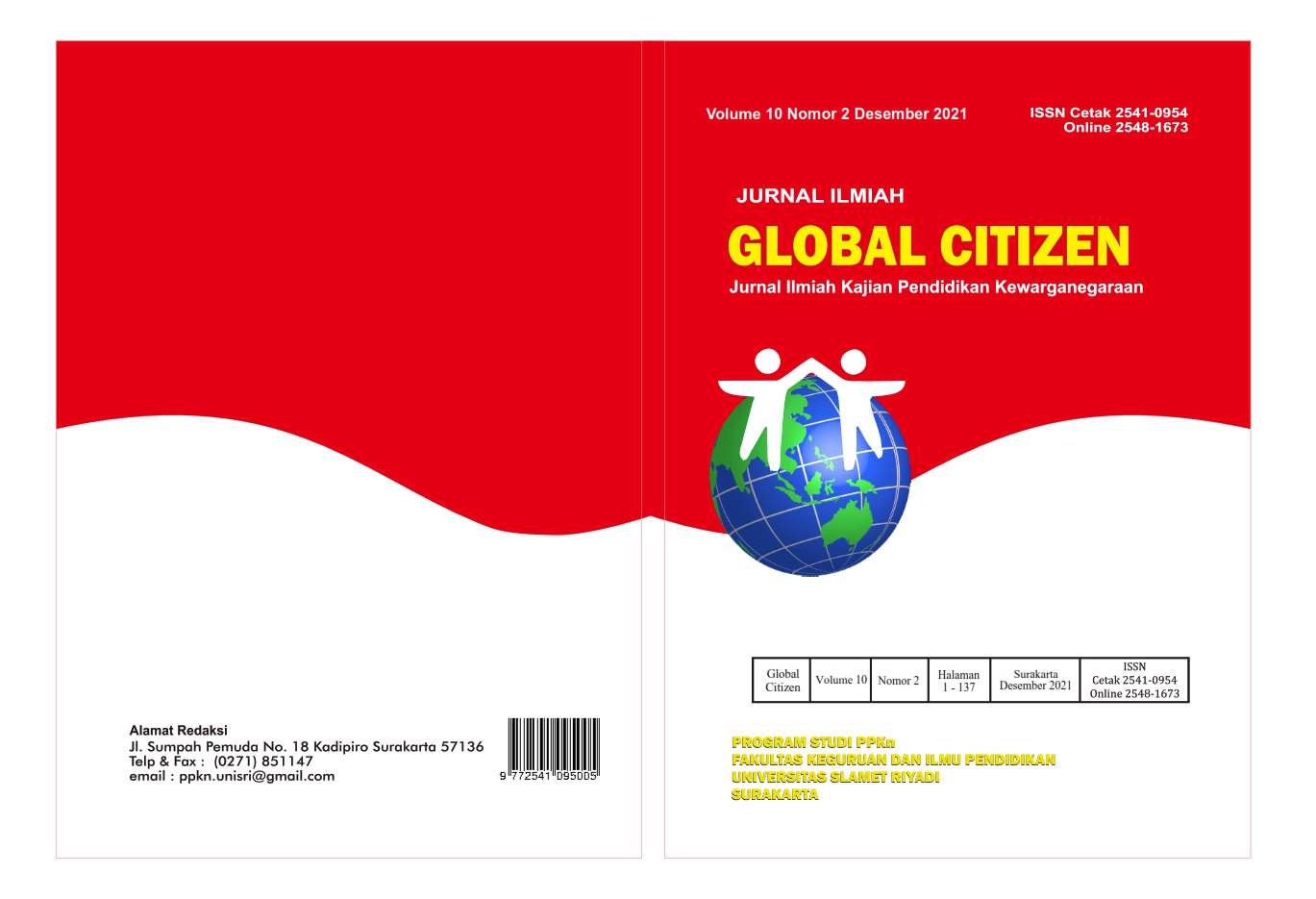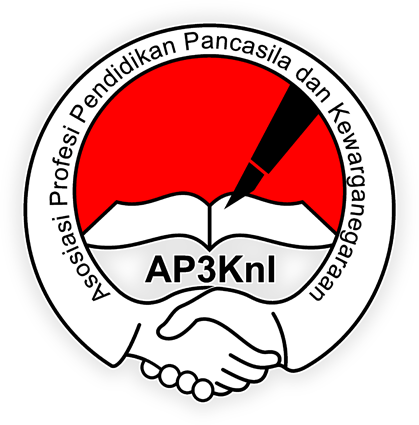GLOBALIZATION EFFECT ON PANCASILA VALUES APPLICATION AMONG MILLENNIAL GENERATION
DOI:
https://doi.org/10.33061/jgz.v10i2.5765Keywords:
Lifestyle, the millennial generation, Pancasila, understanding, attitudesAbstract
Pancasila is taken from the noble values that exist and are well-grown in the life of Indonesian society. It shows that the position of Pancasila itself is the source of all sources of law. This research aims to find out the effect of Pancasila values on the attitudes of the younger generations attitude in this era. Whether the changing period can cause the understanding of Pancasila values has changed during the current development, and it affecting the millennial lifestyle and attitude. This study uses a literature review method by collecting and analyzing articles related to the effect of understanding the values of Pancasila on the millennial generation. The article criteria that will be used are articles published in the year 2019-2021. Based on the article that has been collected, it is found that a person’s understanding of the values of Pancasila dramatically affects the way a person behaves. The more a person understands the values contained in Pancasila, the attitudes and lifestyle shown reflect the good Indonesian culture as taught by ancestors and religion. On the other hand, if the understanding is lacking, someone will tend to be more open to habits from foreign cultures that do not match our ancestors’ teachings.References
Prasetyo, D., & Hastangka, H. (2020). Upaya Meningkatkan Pemahaman Epistemologis Pancasila di Perguruan Tinggi. Integralistik, 32(2), 61-69.
Kustoyo, N. E. H., & Zunariyah, S. (2019). PEMAKNAAN MAHASISWA TERHADAP SIMBOL PANCASILA SEBAGAI IDENTITAS BANGSA. Journal of Development and Social Change, 2(2), 3-10.
Anggraini, D., Fathari, F., Anggara, J. W., & Al Amin, M. D. A. (2020). Pengamalan nilai-nilai Pancasila bagi generasi milenial. Jurnal Inovasi Ilmu Sosial dan Politik (JISoP), 2(1), 11-18.
Asyari, D., & Dewi, D. A. (2021). Peran Pendidikan Kewarganegaraan bagi Generasi Milenial dalam Menanamkan Jiwa Nasionalisme Di Era Globalisasi. Jurnal Pendidikan dan Konseling (JPDK), 3(2), 30-41.
Persia TMU. Menjadi anak muda selain Millennial mencintai Pancasila Dan juga mencintai produk dalam Negeri. 2019;
Karlina, S., Nurfaridah, W. O., Lasambouw, C. M., & Mathilda, F. (2020, September). Penerapan Nilai-Nilai Pancasila di Kalangan Mahasiswa dalam Melaksanakan Kebijakan Pemerintah dalam Bidang Pendidikan di Era Pandemi Covid-19. In Prosiding Industrial Research Workshop and National Seminar (Vol. 11, No. 1, pp. 1213-1219).
Harcici, H. (2019). TETESAN KRISTALISASI NILAI-NILAI PANCASILA PADA TARUNA/I STIMART†AMNI†SEMARANG SEBAGAI GENERASI MUDA DI ERA MILLENNIAL. JURNAL SAINS DAN TEKNOLOGI MARITIM, 20(1), 91-101.
Zaidan, M. N. Z. (2020). MEMBANGUN KESADARAN DAN KARAKTERISTIK BAGI GENERASI MILENIAL DALAM SISTEM PERTAHANAN NEGARA (Building Awareness and Characteristics for Millennial Generation in the State Defense System). Available at SSRN 3621909.
Meynawati, L., & Dewi, D. A. (2021). Implementasi Nilai-Nilai Pancasila Bagi Generasi Millenial di dalam Kehidupan Sehari-hari. Jurnal Pendidikan Tambusai, 5(1), 944-951.
Humaidi, H. (2019). REVITALISASI PENDIDIKAN KEWARGANEGARAAN BAGI GENERASI MILENIAL. Al-Falah: Jurnal Ilmiah Keislaman dan Kemasyarakatan, 19(1), 140-146.
Melfianora. Penulisan Karya Tulis Ilmiah dengan Studi Literatur [Internet]. OSF; 2019. Available from: osf.io/efmc2
Hardani, H. A., Ustiawaty, J., Istiqomah, R. R., Fardani, R. A., Sykmana, D. J., & Auliya, N. H. (2020). Buku Metode Penelitian Kualitatif & Kuantitatif. Yogyakarta: CV. Pustaka Ilmu Group

Downloads
Published
How to Cite
Issue
Section
License
Copyright (c) 2021 Umi Sofiana

This work is licensed under a Creative Commons Attribution-NonCommercial 4.0 International License.
Authors who publish this journal agree to the following terms:
- Authors retain copyright and grant the journal right of first publication with the work simultaneously licensed under a Creative Commons Attribution License that allows others to share the work with an acknowledgement of the work's authorship and initial publication in this journal.
- Authors can separately make additional contractual arrangements for non-exclusive distribution published by the journal (e.g., publish it in a book), with an acknowledgement of its initial publication in this journal.
- Authors are allowed and encouraged to send their work via online (e.g., in the institutional repositories or their website) after published by the journal.















